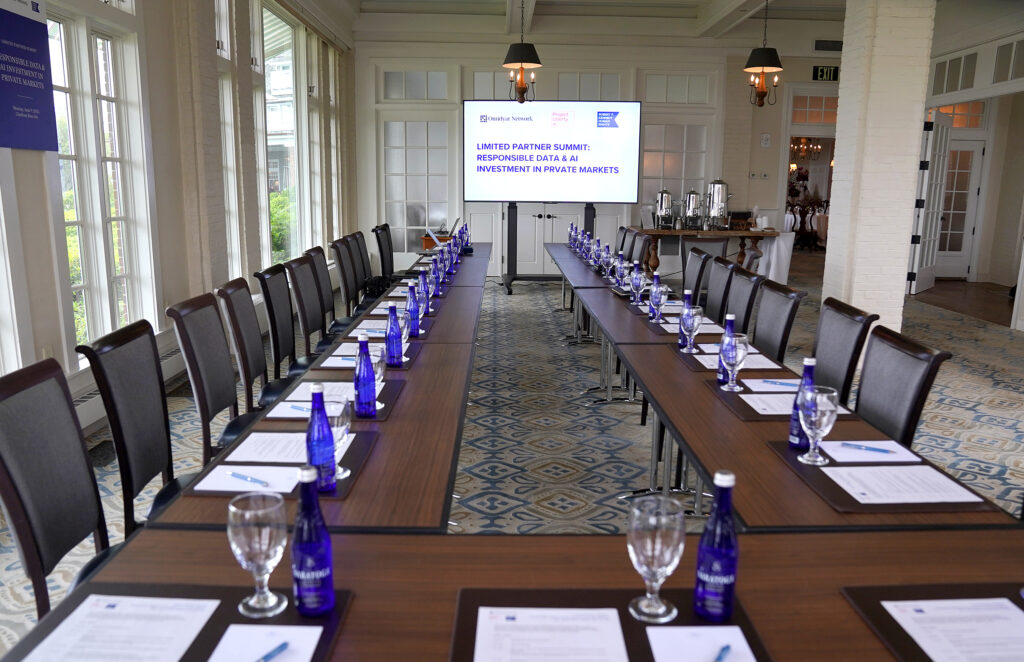
On June 9th, Project Liberty and Omidyar Network, in partnership with Robert F. Kennedy Human Rights, convened a select group of senior representatives from institutional limited partners at the Compass Summer Investors Conference for a summit focused on exploring how investors can help create a more equitable and responsible data economy. The investors that participated in this initiative represent over $4.4 trillion in assets under management and advisement across pension funds, endowments, and other institutional investors, shaping the flow of capital into technology markets. This in-person gathering built upon the groundwork laid by a three-part virtual roundtable series, which examined the contours of a “good” data economy, expectations for AI governance, and current LP practices in due diligence and stewardship.
The summit was centered around a shared insight: as AI continues to evolve and disrupt markets, responsible innovation must be anchored in transparency, equity, and long-term governance. “The question is no longer whether data and AI affect investment performance and systemic risk—it’s how investors can practically govern those impacts across portfolios,” said Mike Kubzansky, CEO of Omidyar Network. “From due diligence to GP engagement, LPs have a crucial opportunity to ensure the next wave of technological innovation drives responsible deployment, manages risk, and promotes resilient markets and long-term value creation for shareholders and the rest of society.”
Key themes throughout the day included the urgent need for clear internal frameworks, collaborative tools, and greater LP influence over GP behavior. As demonstrated by the Project Liberty Institute and Venture ESG white paper, while 75% of LPs surveyed recognize AI as a material investment risk, only 19% report being adequately equipped to manage it, pointing to a growing gap in investor readiness. To address this, participants explored a pilot Corporate AI Risk Assessment Framework designed to guide decision-makers on materiality, governance, and accountability. But the summit made clear that disclosure alone is not enough; shifting organizational culture and investment norms will be essential to scaling responsible technology.
Discussions also pointed towards the potential for philanthropic capital, informal working groups, and shared guidance to accelerate field-wide alignment on responsible tech governance. Asset owners have a real opportunity to shape outcomes, especially when equipped with the tools and strategies to engage GPs effectively, allocate capital with clearer expectations, and shape a market environment where responsible innovation scales competitively.
Kerry Kennedy, President of RFK Human Rights, left attendees with a resonant question: “What would it look like if innovation did not come at the expense of human rights, dignity, equity, and accountability?” The message was clear: investors must step into their power as stewards of capital, shaping a more just and transparent digital economy. This summit represented a powerful step toward building the relationships and infrastructure needed to ensure that the digital future is more just.



